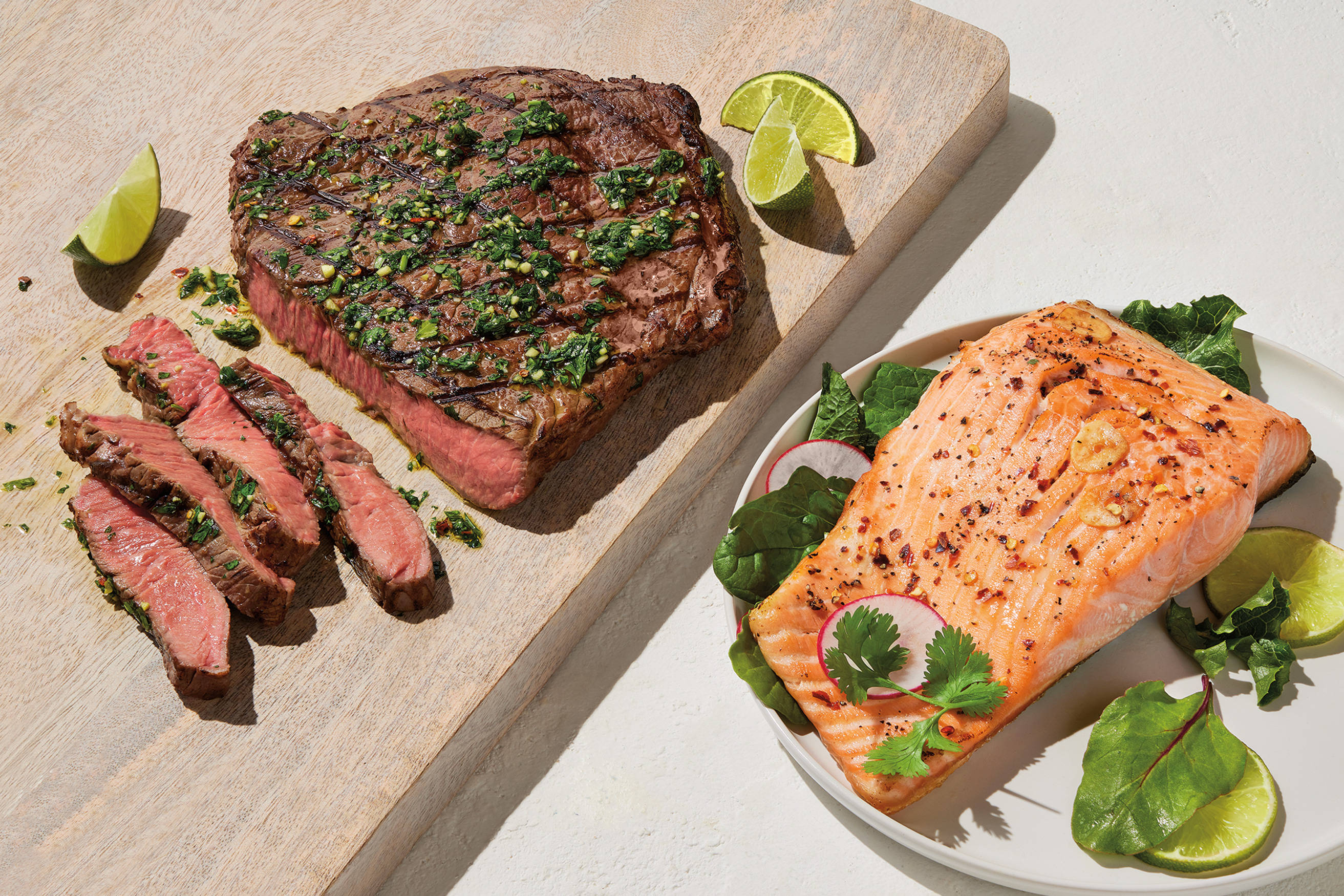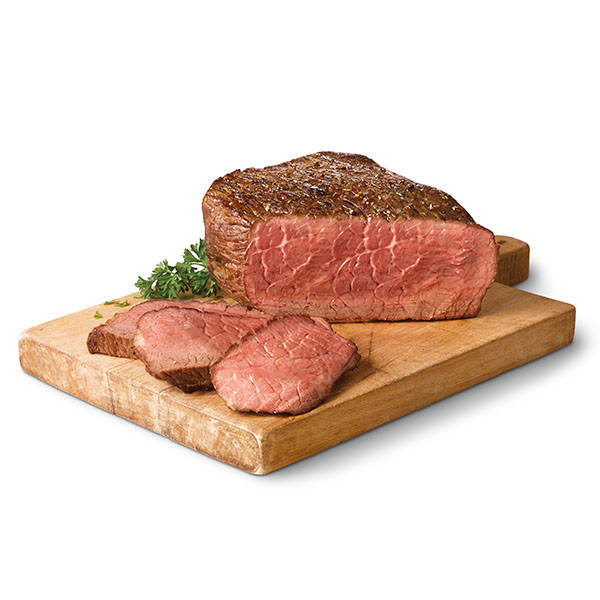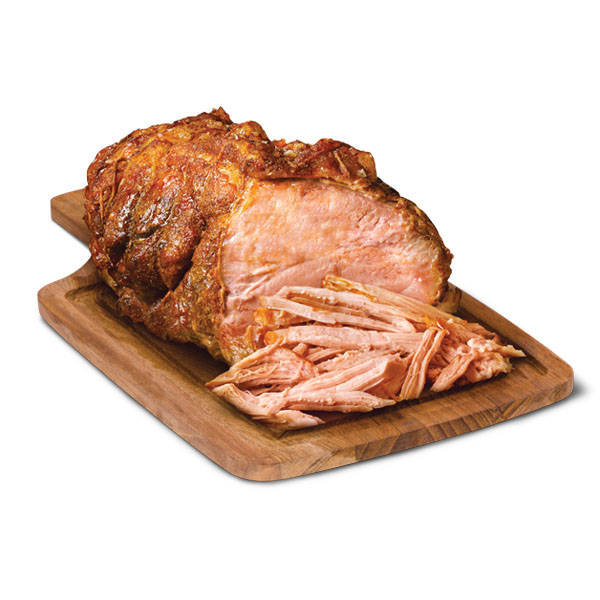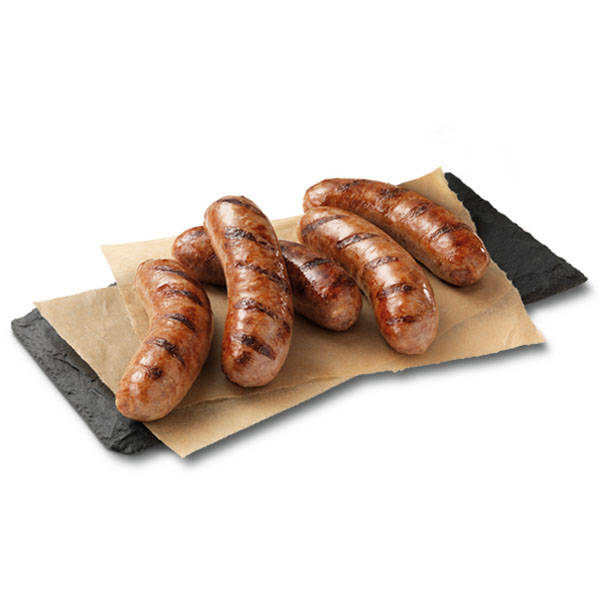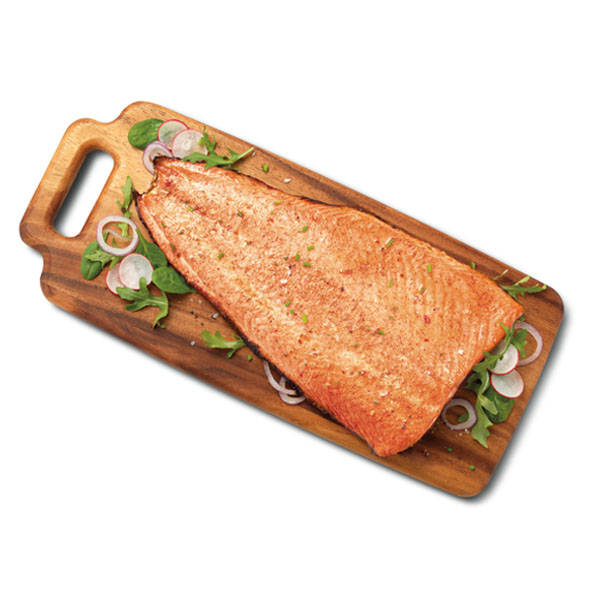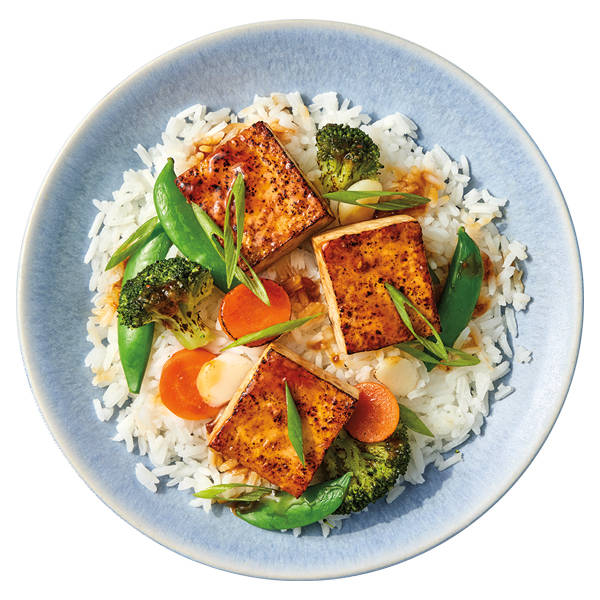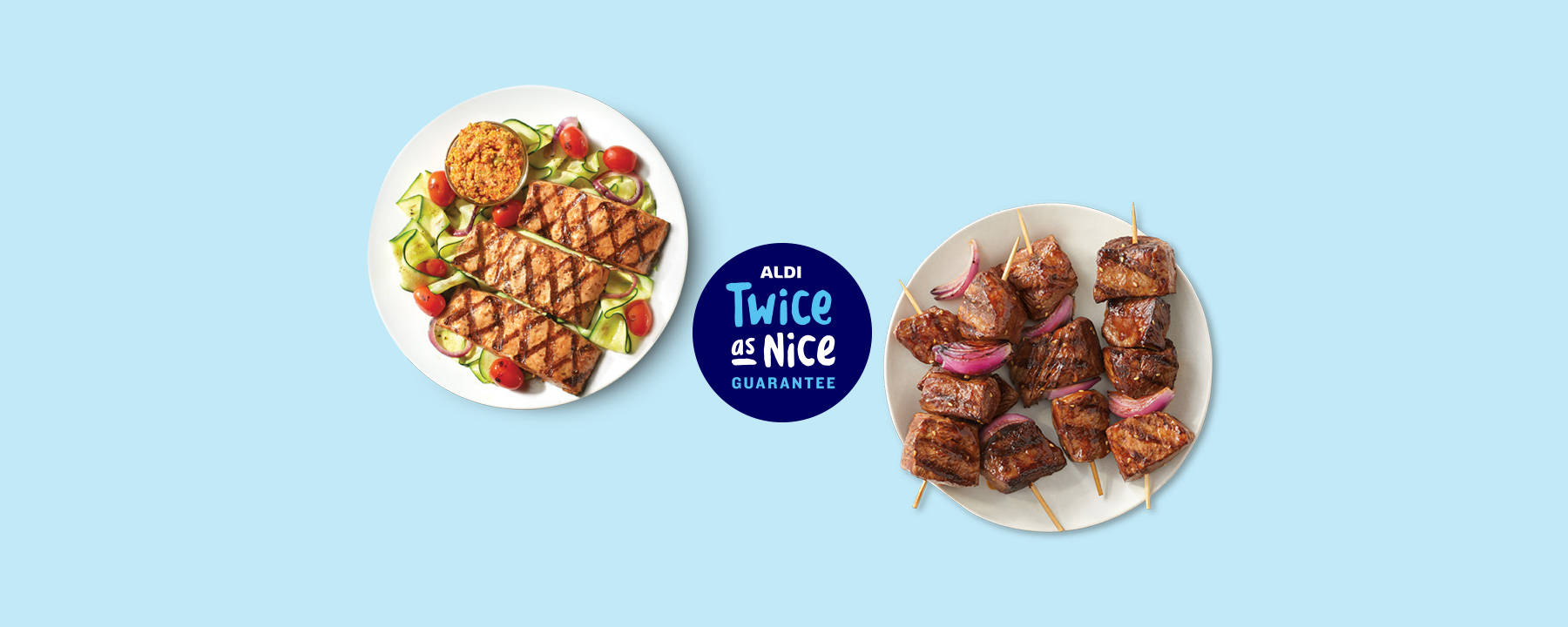When you shop meat and seafood at your local ALDI, you’re not just getting great deals on fresh beef, fish, poultry and pork. You’re also getting high-quality meat and seafood, without the added hormones, additives and preservatives.
*No preservatives, no additives and no added steroids does not apply to all fresh chicken products in all stores. Check labels at store for details.
Fresh Meat & Seafood FAQs
A: Beef, pork, lamb, venison, bison and other game are categorized as red meat. Red meat contains high amounts of myoglobin, which is an iron-rich protein that is found in animal muscle. The myoglobin is what gives the meat it’s dark red color when raw.
A: Yes, you can freeze meat. However, there are precautions that need to be taken to ensure it is done safely. Starting with fresh, high-quality meat tends to yield the best results when freezing. One of the most important steps is properly wrapping/sealing the meat to protect it from freezer burn. When wrapping the meat, be sure to squeeze out as much air as possible to make sure it is properly sealed and protected. Freezer burn can affect the taste, texture and appearance of food. Meat can usually be frozen in its original packaging, but you’ll want to add a second airtight layer. In some cases, the meat you purchase may come in vacuum-sealed packaging. In that case, it is ready to be frozen.
A: Yes, you can freeze fish. However, if it is not properly frozen the taste, texture and appearance of the fish can be negatively impacted. The best way to freeze fish is to vacuum seal it. If you do not own a vacuum-sealer, purchasing frozen fish may be the best option since much of the time it is already in vacuum sealed packaging.
A: Yes, eating raw fish is common. Popular dishes include sushi and sashimi. However, there are risks of foodborne illness that come along with eating raw fish. Fish that is intended for raw consumption is typically labeled as “sushi-grade”. Sushi-grade means that the fish has been frozen in order to kill any parasites. Young children, pregnant women and those who are immunocompromised should avoid eating uncooked seafood.
A: According to the USDA, it is dangerous to eat raw or undercooked beef. To ensure all bacteria are destroyed, you should use a meat thermometer when cooking beef to make sure it reaches a safe internal temperature.
A: Many steps can be taken to prevent cross-contamination. Use separate grocery bags for raw meat when you transport it home. Store raw meat in a plastic bag on the bottom of your refrigerator to help prevent the juices from leaking onto other foods in your refrigerator. When cooking the meat, use separate utensils for the meat and other foods you may be cooking. If you only have one utensil, be sure to wash and sanitize it between use on raw and ready-to-eat foods.
A: Marinating helps to add flavor and tenderize meat.
A: Meat is high in protein which is important for building and maintaining muscle mass. It also contains iron, which is needed to produce red blood cells. This can help to prevent anemia. It also contains vitamin B12.
A: Seafood is a good source of lean protein. It contains omea-3 fatty acids, iron, zinc, magnesium and other minerals.
A: Eating protein can make you feel full longer. It also helps to maintain and increase muscle mass. High protein intake also helps to prevent muscle loss as you lose weight.
A: ALDI carries a selection of affordable and high-quality beef such as sirloin tip roast, ribeye steak, strip steak, skirt steak, brisket and more.
A: ALDI carries a selection of affordable and high-quality poultry including ground chicken, chicken drumsticks, chicken breasts, chicken breast tenderloins, ground turkey, turkey tenderloins and more.
A: ALDI carries a selection of affordable and high-quality fish including Atlantic salmon, Coho salmon, lightly smoked salmon portions, wild caught cod portions, tilapia fillets, steelhead trout and more.

